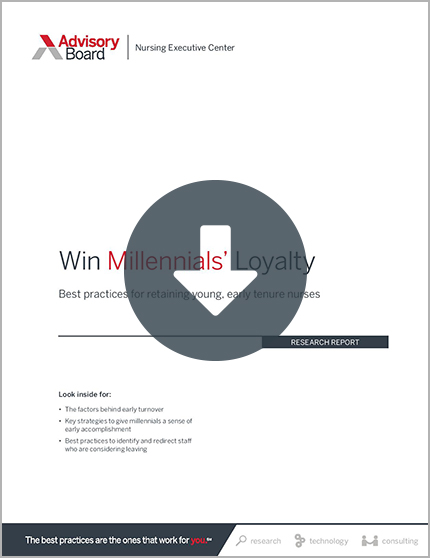Auto logout in seconds.
Continue LogoutEditor's note: This popular story from the Daily Briefing's archives was republished on Sept. 9, 2020.
Personality "types" are a controversial topic among psychologists, with some arguing that it's just not possible to group billions of people into a handful of types. But a recent study published in Nature Human Behavior suggests that, in fact, all people fall into one of four previously unidentified personality types, Ben Guarino reports for Washington Post's "Speaking of Science."
Cheat sheets: Evidence-based medicine 101
The experts agree on personality traits—but not types
The controversy over personality "types" doesn't mean that psychologists don't accept the existence of broad personality characteristics. In fact, psychologists agree there are five main personality traits, called the Big Five: agreeableness, conscientiousness, extroversion, neuroticism, and openness.
However, social psychologists disagree over whether it's meaningful to group people into a handful personality types. That's because research has shown personality types are not consistent and cannot reliably predict a person's character or likelihood of success.
Further, even though there are some well-known approaches for identifying personality types, many are based on unreliable theories, according to "Speaking of Science." For example, the Myers-Briggs personality test is based on the theory that personalities can be categorized into 16 personality archetypes—ranging from INTJ, which stands for introversion-intuition-thinking-judgment, or ESFP, which stands for extrovert-sensing-feeling-perceiving.
But that theory arose from the Swiss psychoanalyst Carl Jung's assessments of literary motifs and observations of people he knew. Jung did not base his theory on empirical findings, "Speaking of Science" reports.
Study findings
Even so, some researchers still believe the notion that personalities can be broken down into types has some merit—it just needs to be demonstrated using more substantial data.
To that end, researchers at Northwestern University analyzed personality data representing 1.5 million people from the United States and England who completed questionnaires assessing the five well-established personality traits. The researchers then used a machine learning algorithm to identify personality types based on clusters of traits.
Based on the clusters, the researchers came up with four personality types:
- Average, which included individuals who scored average on all five categories;
- Role models, which included individuals who scored high on all five of the personality traits except neuroticism;
- Reserved, which included individuals who did not score high on openness or extroversion, but who scored relatively high on agreeableness and conscientiousness; and
- Self-centered, which included individuals who scored high in extroversion but below average in agreeableness, conscientiousness, and openness.
The researchers found teenage males were the most likely to be "self-centered" but that people overall were more likely to develop the "role model" personality type as they aged, even including the self-centered teens.
Comments
John Johnson, a Pennsylvania State University psychologist, said the findings present "a very strong case for personality types defined by configurations of the Big-Five personality traits." Johnson added, "What is unique about the current study is their choice of the Big Five trait domains as a starting point, rather than some theoretical types that sprang from the imagination of the theorist." He added that the connections found between age, gender, and personality types are unsurprising, because "[p]ersonality changes, very slowly, over time in the direction of greater maturity: greater agreeableness, conscientiousness and emotional stability."
But not everyone is convinced: Alexander Swan, a psychologist at Eureka College, raised doubts about the final personality types, saying, "To have one of their clusters called average is weak" (Guarino, "Speaking of Science," Washington Post, 9/17).
Cheat sheets: Evidence-based medicine 101
Been awhile since your last statistics class? It can be difficult to judge the quality of studies, the significance of data, or the importance of new findings when you don't know the basics.
Download our cheat sheets to get a quick, one-page refresher on some of the foundational components of evidence-based medicine.
Don't miss out on the latest Advisory Board insights
Create your free account to access 1 resource, including the latest research and webinars.
Want access without creating an account?
You have 1 free members-only resource remaining this month.
1 free members-only resources remaining
1 free members-only resources remaining
You've reached your limit of free insights
Become a member to access all of Advisory Board's resources, events, and experts
Never miss out on the latest innovative health care content tailored to you.
Benefits include:
You've reached your limit of free insights
Become a member to access all of Advisory Board's resources, events, and experts
Never miss out on the latest innovative health care content tailored to you.
Benefits include:
This content is available through your Curated Research partnership with Advisory Board. Click on ‘view this resource’ to read the full piece
Email ask@advisory.com to learn more
Click on ‘Become a Member’ to learn about the benefits of a Full-Access partnership with Advisory Board
Never miss out on the latest innovative health care content tailored to you.
Benefits Include:
This is for members only. Learn more.
Click on ‘Become a Member’ to learn about the benefits of a Full-Access partnership with Advisory Board
Never miss out on the latest innovative health care content tailored to you.

